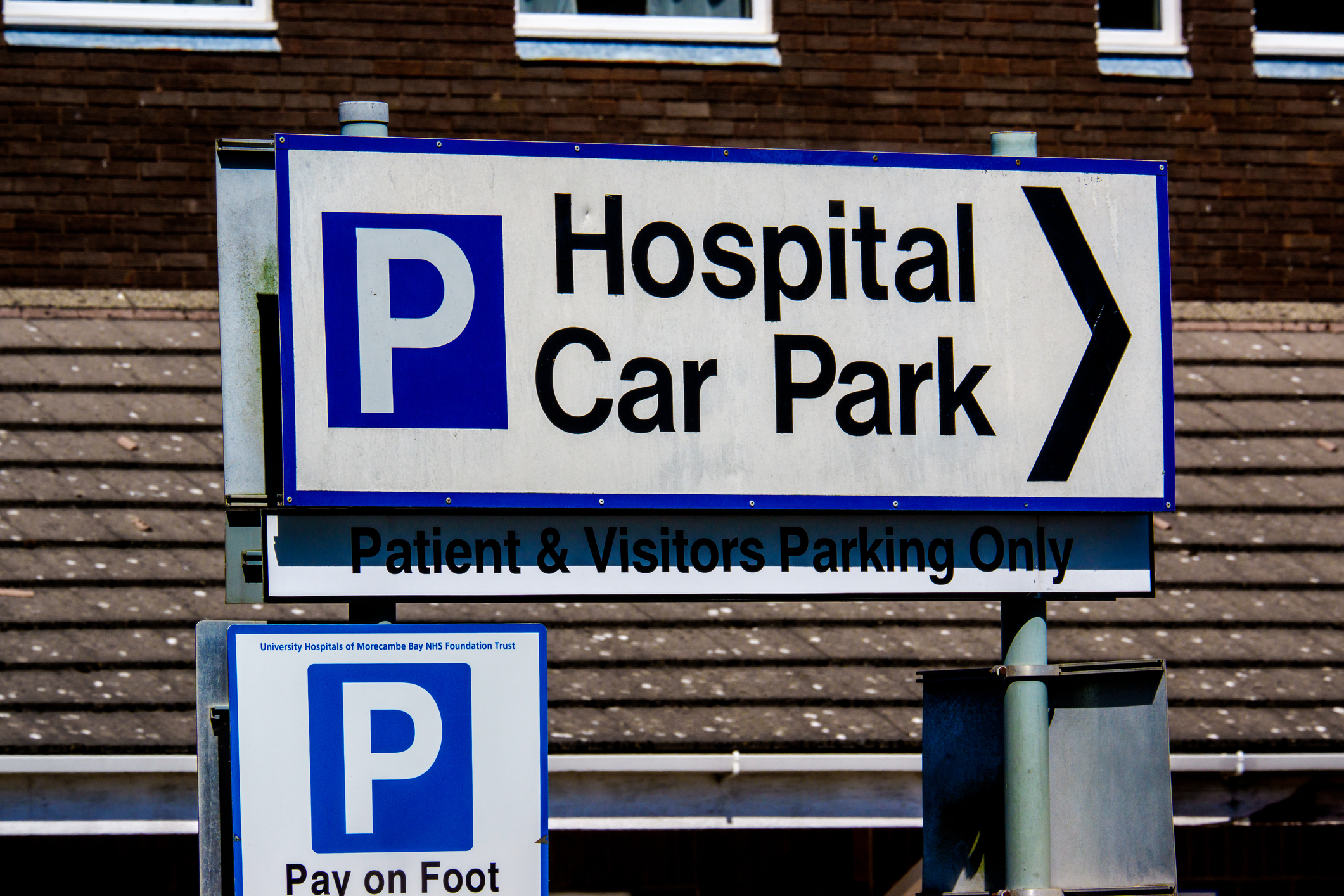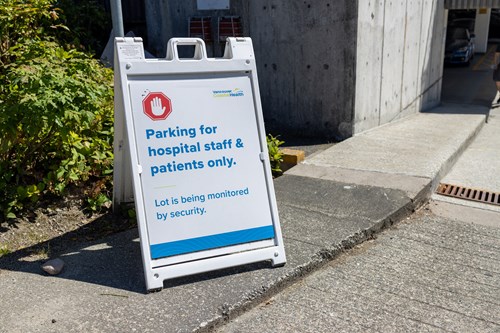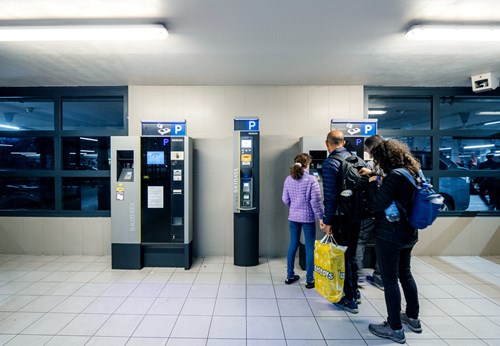
Exploring the topic of hospital parking exposes many varying and diverse viewpoints and grievances. Balancing the provision of a vital service during challenging times while ensuring safety and smooth operations poses a huge challenge. While some argue for a singular solution, at Parking Network, we embrace a more open-minded approach. Today, we delve into global trends in hospital parking, offering insights into practices and challenges felt globally.
Well-implemented parking facilities ensure that patients, visitors, and healthcare providers can easily access the hospital premises. This is particularly important for individuals with mobility challenges, elderly patients, or those requiring urgent medical attention. Easy access to parking reduces stress and facilitates timely access to healthcare services.
Not only patients, but family members and staff require adequately functioning parking facilities too. With efficient parking management, hospital staff can quickly move between shifts, emergency vehicles can access the facility without delays, and visitors can navigate the area without unnecessary obstructions. Simple enough to understand but potentially very difficult to implement, depending on resources, budget, and prioritizations.
European Hospital Parking Practices
Before reading on please note that the following is a general account and cannot be taken as fact for each city.
One of the major challenges faced with hospital parking infrastructure is the limited space available. European hospitals often face challenges with limited parking space due to the dense urban environments in which they are located. This scarcity of parking areas can result in higher demand, leading to potential parking shortages and difficulties finding available spaces. Some European cities have implemented travel schemes to give staff a discount on travel expenses, such as this recent case study in Rotterdam in the Netherlands, thus freeing up more space for those who need it most, the patients.
The on-site parking facilities that are available are often paid-for services, with revenue being fed back into maintaining or updating parking technologies. Hospitals within Europe, generally speaking, section their parking for different departments - such as MUMC Maastricht in the south of the Netherlands, which separate the car park into general parking, oncology, dialysis, and A&E. These spaces are not charged, but do incur fines for unauthorized parking. 
As another example, the parking at St. James Hospital in Dubin uses onsite paid parking patrolled by traffic management staff during peak hours, off-site short-stay outpatient parking provided via a partnered service, as well as public transport options. The facility has updated its website to give a comprehensive overview of its parking options, fees, location of payment terminals, and even maps of the car park and hospital entrances so that visitors can make the most informed choice.
Overall facilities in Europe, at least in major cities, are quite up-to-date. Practices can vary significantly between countries of course, even within cities themselves. Let's look at how the US approaches Hospital parking facilities.
US Hospital Parking Practices
Hospitals in the US also focus on providing modern and accessible parking options. Dedicated spaces for patients with disabilities are integrated to support accessibility and comply with the Americans with Disabilities Act (ADA). Focus on technology and reduction in carbon footprint is also a to topic in the US, however, it comes at a cost - often put on the shoulders of the car park users themselves.
Costs are a much more prevalent concern in the US due to the drastic differences in health insurance coverage. Medical bills are less subsidized than in Europe (again generally speaking of course), so those facing significant health issues are already financially burdened.
Whilst some hospitals can offer free of charge parking for patients with certain conditions, their ability to do so relies wholly on state funding. Should a facility want to update or implement up to date parking technologies, this cost may return to the patients in high parking fees.
“If you want to rile up patients or caregivers or family members, just bring up parking costs,” said Dr. Fumiko Chino, a radiation oncologist at Memorial Sloan Kettering Cancer Center in New York who studies the “financial toxicity” of cancer treatment, including costs not covered by insurance, such as parking fees.
In a story ran by NBC news, Chino added “For people who have to pay $15 to $18 every single time, which is what I remember paying, it really feels like the last straw, frankly — like kicking you when you’re down.” Chino and colleagues published a short study in July showing that some cancer patients pay $1,680 in parking fees over the course of treatment.
 Public transportation services and ride-share incentives are available to avoid parking fees, however, this is not an option for those who are immunocompromised or those who have mobility issues. Space and available tech are not an issue when it comes to facilitating America's medical parking needs, but cost serves as the biggest stumbling block. Funds spent on parking is money that is not spent on medical equipment and beds. Often advisory boards need to make the choice between refurbishing parking facilities or creating more in-patient bed space.
Public transportation services and ride-share incentives are available to avoid parking fees, however, this is not an option for those who are immunocompromised or those who have mobility issues. Space and available tech are not an issue when it comes to facilitating America's medical parking needs, but cost serves as the biggest stumbling block. Funds spent on parking is money that is not spent on medical equipment and beds. Often advisory boards need to make the choice between refurbishing parking facilities or creating more in-patient bed space.
Whilst experiencing different difficulties, hospital parking services in the USA and Europe strive for the same outcome. After all, everyone needs safe, secure, and easy parking when dealing with healthcare issues. Hospitals and their patients are affected by zoning laws, funding, and access to resources. But the one common denominator is - improvements will always be needed. Hospital parking is not a stagnant field. As healthcare demands evolve, hospitals must adapt to changing requirements. Parking Network members, this is where you come in! Experts in the industry are needed to assist in building, maintaining, and upgrading these lots when funds do become available.
We keep on top of these opportunities in our Tender section on our platform. If there is a public tender for updating facilities or implementing new ones, you are sure to find it there. every day we publish at least 8 new tenders, specifically for the parking industry, globally.
Don't have access to our tender database? Email us about becoming a member!
Interested in our blog topics? Want to comment or suggest a topic for the future? Email elaine@parking.net.





